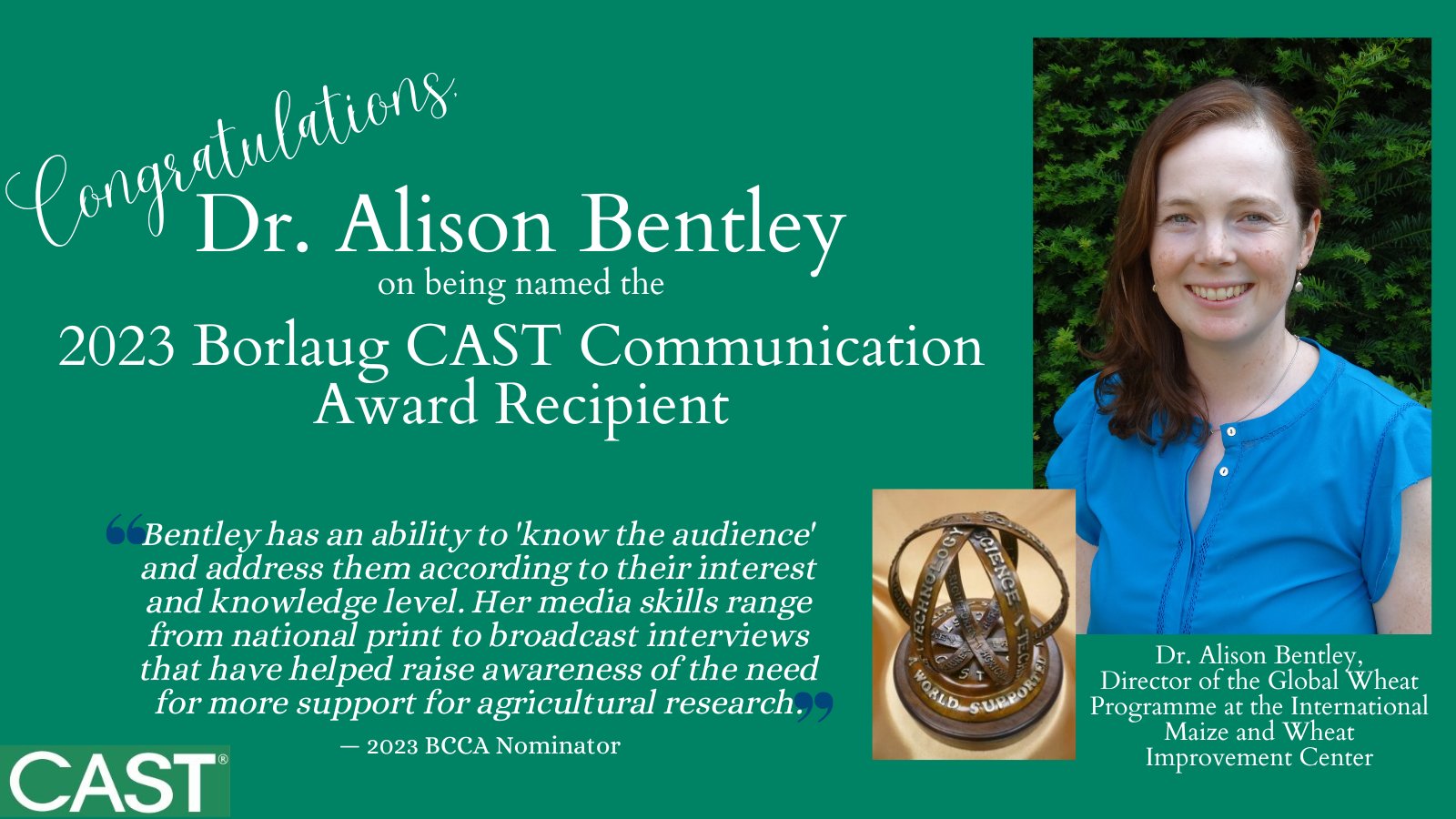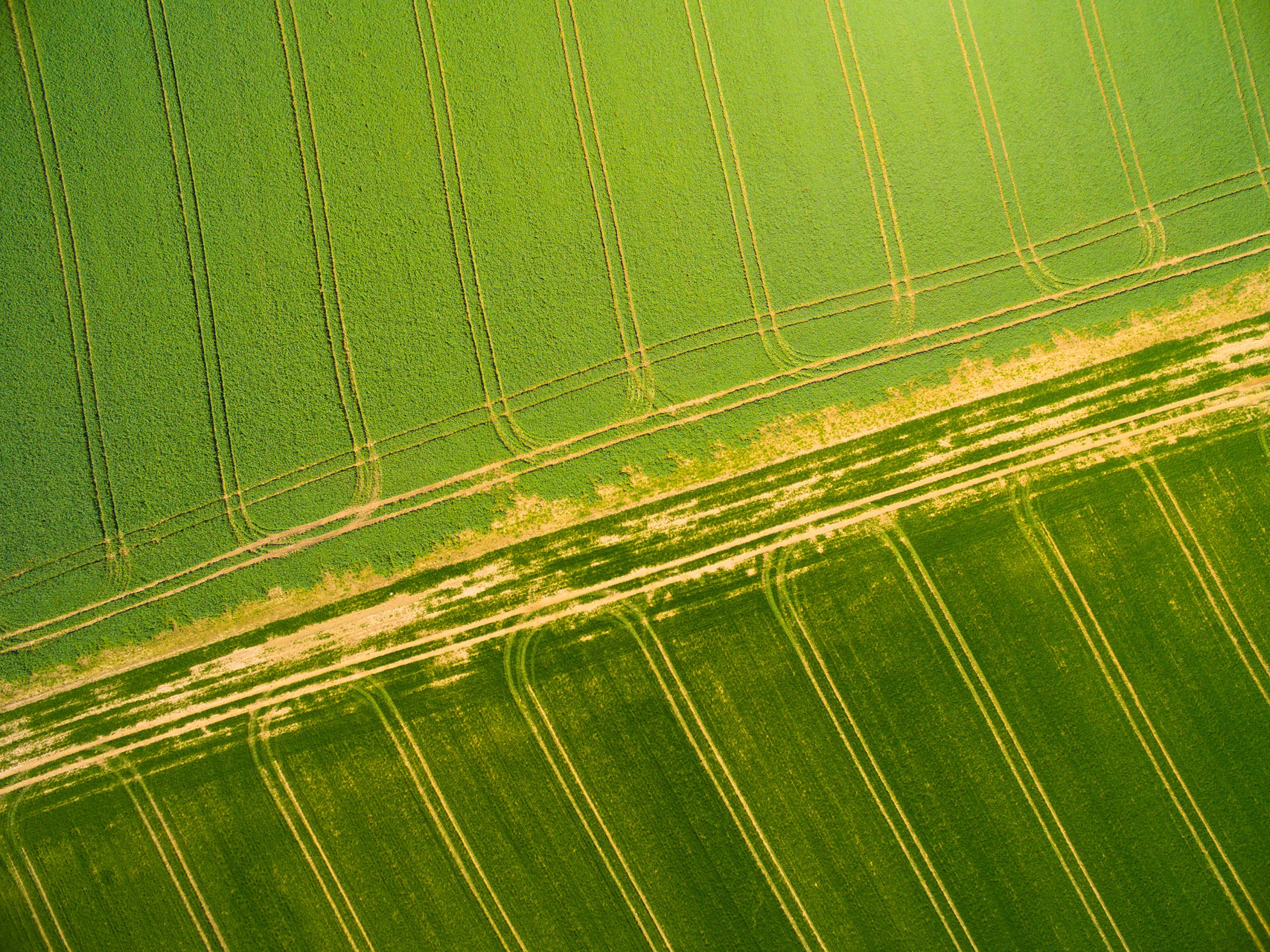The Borlaug Global Rust Initiative (BGRI) is thrilled to announce the recipients of the 2024 Jeanie Borlaug Laube Women in Triticum (WIT) Early Career Awards, honoring excellence in science and leadership for a wheat-secure future.
The WIT awards stand as a premier recognition of talent and dedication among early-career scientists in the field of wheat and its closest cereal relatives. This year’s awardees, originating from Chile, China, Kenya, Spain, and Tunisia, embody innovation and dedication in their respective fields of wheat research.
“These exceptional women exemplify the spirit of excellence and innovation that drives progress in wheat research and ensures a resilient future for global food security,” said Jeanie Borlaug Laube, chair of the BGRI and daughter of Nobel Prize Peace-winner Norman E. Borlaug. “My father’s legacy, rooted in a tireless dedication to feeding the hungry and improving lives through agricultural innovation, continues on through the potential of scientists like these five amazing scientists.”
The WIT Early Career Award offers the opportunity for additional training, mentorship, and leadership development. The 2024 awards are made possible thanks to the support of the BGRI and the Accelerating Genetic Gains in Maize and Wheat (AGG) project led by CIMMYT.
“I am continually inspired by the passion and drive exhibited by our WIT Early Career Award recipients,” said Maricelis Acevedo, director for science for the BGRI and research professor in Cornell University’s College of Agriculture and Life Sciences.
Since founding the WIT awards in 2010, the BGRI has now recognized 76 early-career award winners from 32 countries.
“The future of wheat science to improve farmers’ livelihoods and consumers’ nutrition security is in good hands with these five WIT award recipients contributing their exceptional science and leadership to the global wheat research community,” said Kevin Pixley, interim director of CIMMYT’s Global Wheat Program.
2024 WIT Awardees
Patricia Cabas-Lühmann
Patricia Cabas-Lühmann, from Chile, is a postdoctoral fellow at the Pontifical Catholic University. Her research focuses on the identification of genomic regions and genes associated with quality traits such as protein content, fiber content, and iron and zinc content of ancient tetraploid wheats. Through her research, she aims to identify genomic regions and genes associated with protein, fiber, and nutrient content in ancient tetraploid wheat to enhance wheat’s quality and nutritional content lost due to the selection process.
“The WIT Early Career Award will significantly impact my future. It will allow me to be part of this international community that is essential to food security,” said Cabas-Lühmann. “This will facilitate collaborative initiatives, enabling me to learn and share knowledge so that together, we can advance to solve future agricultural challenges.”

Isabel Faci, from Spain, is a third-year Ph.D. student at the John Innes Centre. Her research focuses on deciphering genetic mechanisms that govern temperature and photoperiod integration in wheat, and their effects on shoot architecture. Her investigation includes in-depth phenotyping and meristem transcriptomics with plants grown under various environmental conditions. She is using genetics to map the causal gene or genes underlying this environmental-genetic interaction and has also established a Temperature-Free Air Controlled Enhancement (T-FACE) system to replicate predicted future weather in the UK.
“I have met other WIT awardees and they inspired me to continue fostering my confidence and cultivating my own leadership style,” said Faci. “I am excited to leverage this platform to contribute more effectively to gender equality in my field and to inspire other women to embrace leadership roles.”
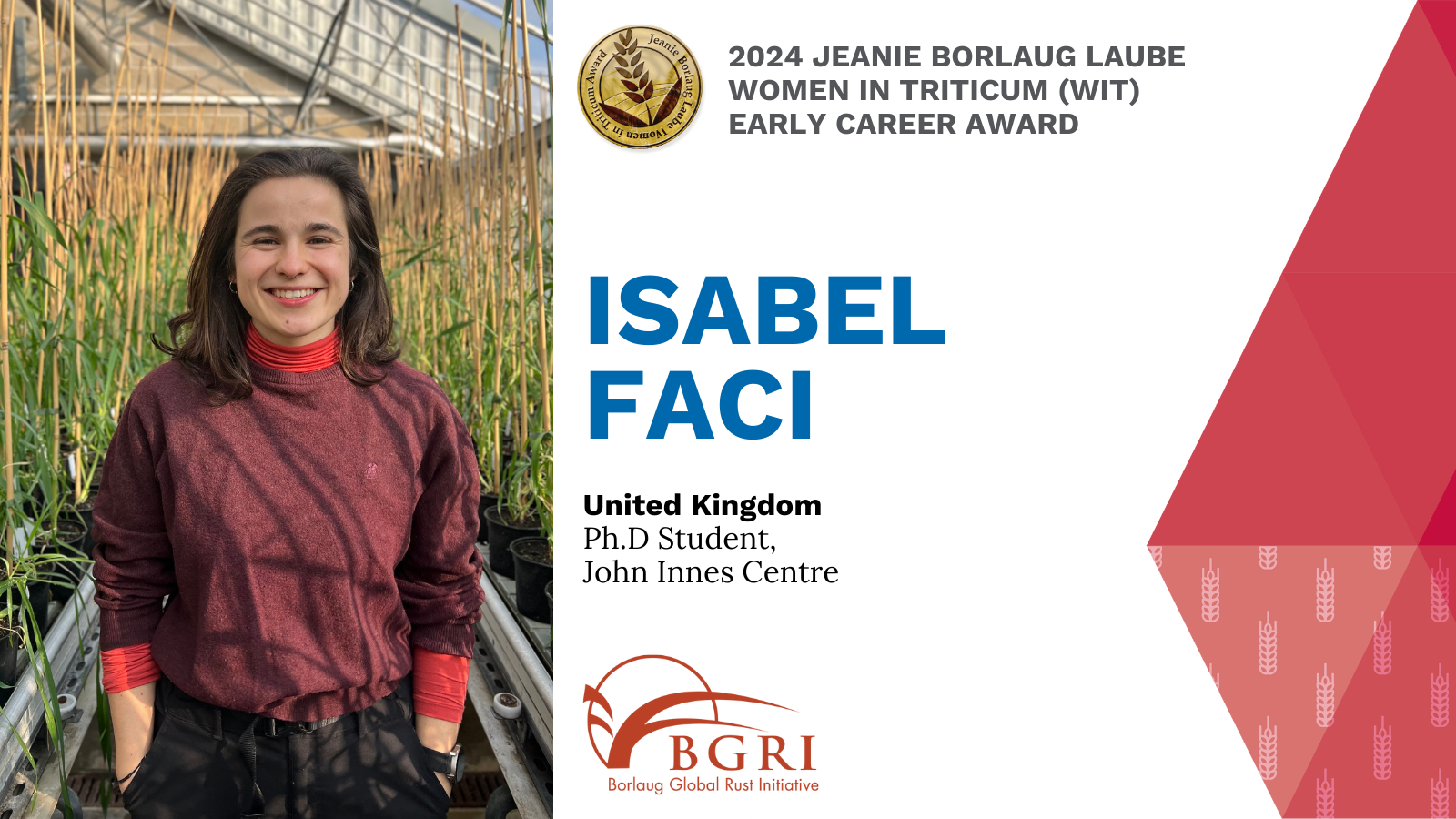
Zennah Kosgey, from Kenya, is a research scientist at the Kenya Agricultural and Livestock Research Organization (KALRO)-Food Crops Research Centre in Njoro. She is at the forefront of disease surveillance in wheat-growing regions of Kenya. She leads efforts in race typing and characterization of stem rust and yellow rust isolates, as well as conducting efficacy tests for new fungicides. She serves as the KALRO lead on the Plant Health Initiative (PHI), in collaboration with CIMMYT, to evaluate and screen rust resistance monitoring nurseries. Collaborating closely with global rust reference centers, she assesses virulence diversity and monitors shifts in new virulence.
“Receiving the WIT Award represents a significant milestone in my career journey. It serves as a powerful validation of my commitment to wheat research while offering an invaluable platform for personal advancement, mentorship, and fostering collaborative initiatives,” Kosgey said. “Such recognition not only underscores my dedication but also signifies an opportunity to make meaningful contributions to the progress of agriculture on a global scale.”
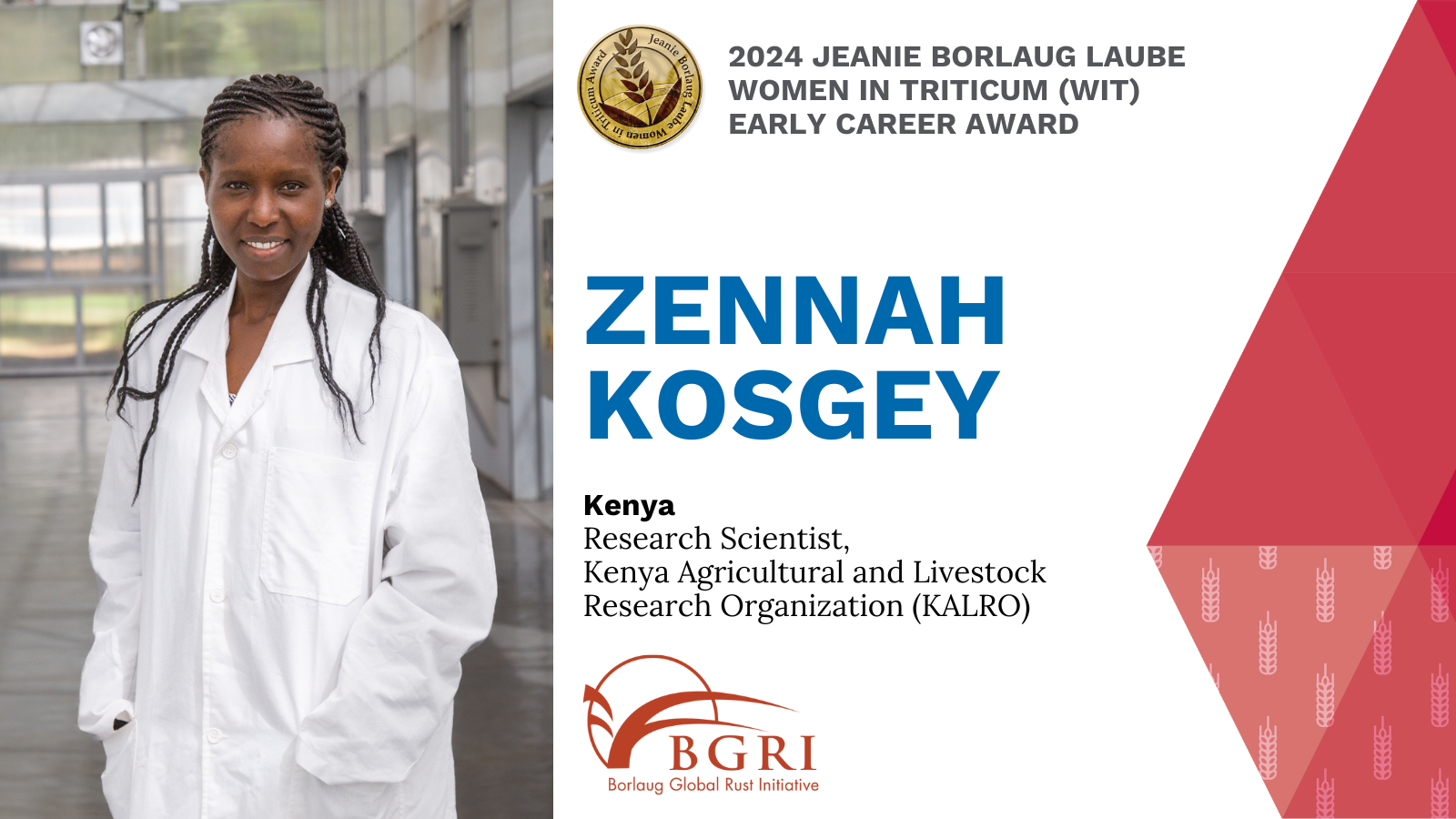
Marwa Laribi, from Tunisia, is a postdoctoral fellow at the University of Alberta in Edmonton, Canada. Her current research centers on the assessment of the genetic diversity present in underutilized genetic resources stored in gene banks. Laribi’s primary objective is to identify potential sources of resistance to various major diseases including tan spot, Septoria tritici blotch, and stem rust. Her interest in wheat and plant pathology grew during her participation in an Advanced Wheat Improvement Course hosted by CIMMYT in 2017.
“This award represents a unique opportunity to empower brilliant women and promote female leadership,” said Laribi. “By becoming part of a diverse community of women across different fields, dedicated to improving food security, I can broaden my network and participate in collaborative efforts to advance research addressing present and future challenges. Together, we can combat hunger and enhance nutrition through our work.”
Zitong Yu, from China, is a postdoctoral research associate at the Wheat Genetics Resource Center and Department of Plant Pathology in Kansas State University. Her current research program focuses on the development of strategies and tools for improving wheat grain yield and quality using the CRISPR-based high-throughput genome editing approaches. With her future research, she hopes to make advances in grain protein and gluten content to improve food and nutritional security.
“The innovation and fast development of gene editing tools make previous challenges becoming feasible,” said Yu. “The recognition from the WIT award will broaden the awareness of the community that high-throughput wheat genome editing is happening, which is a beautiful technology to help researchers with solving complex problems.”
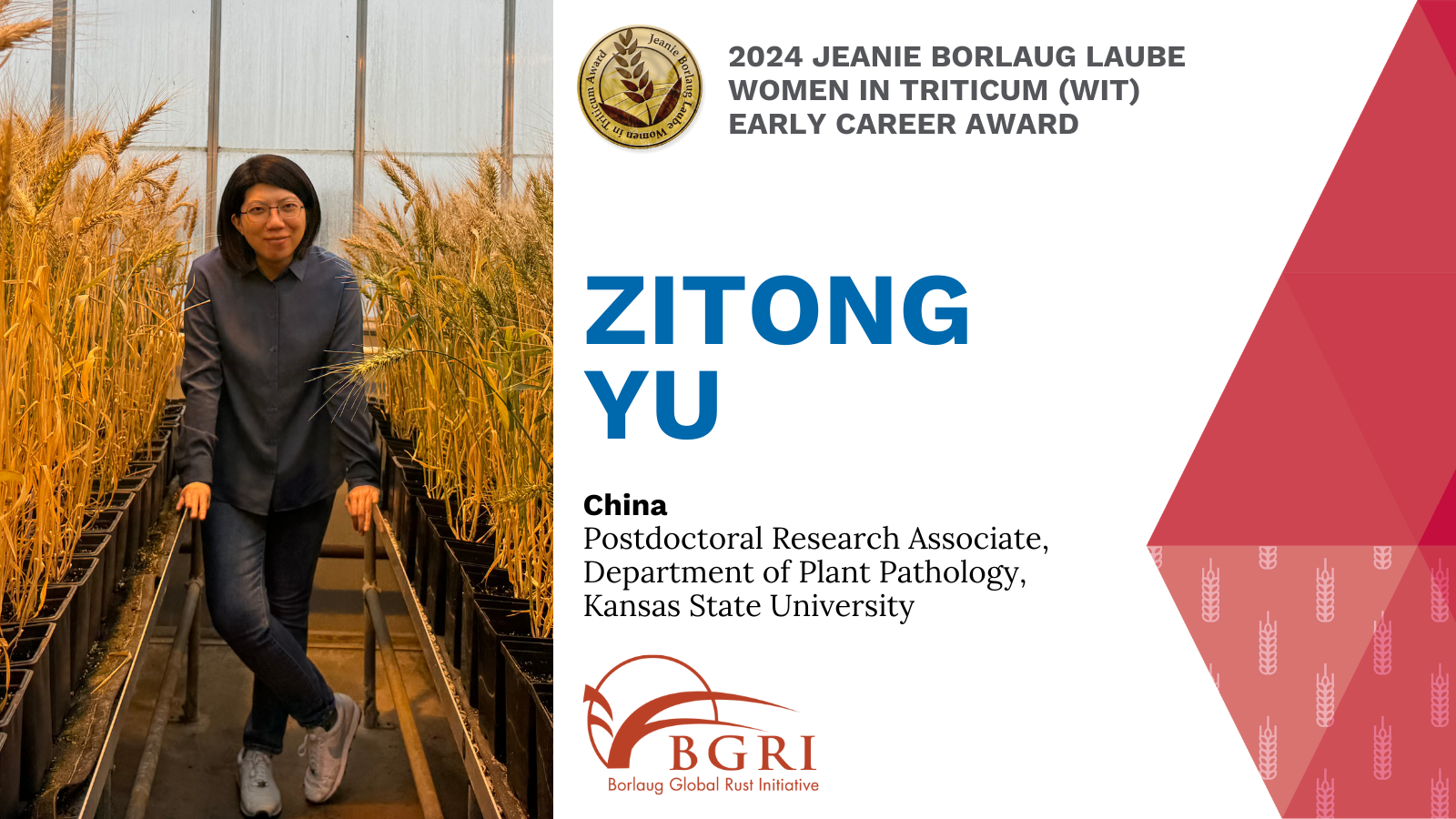
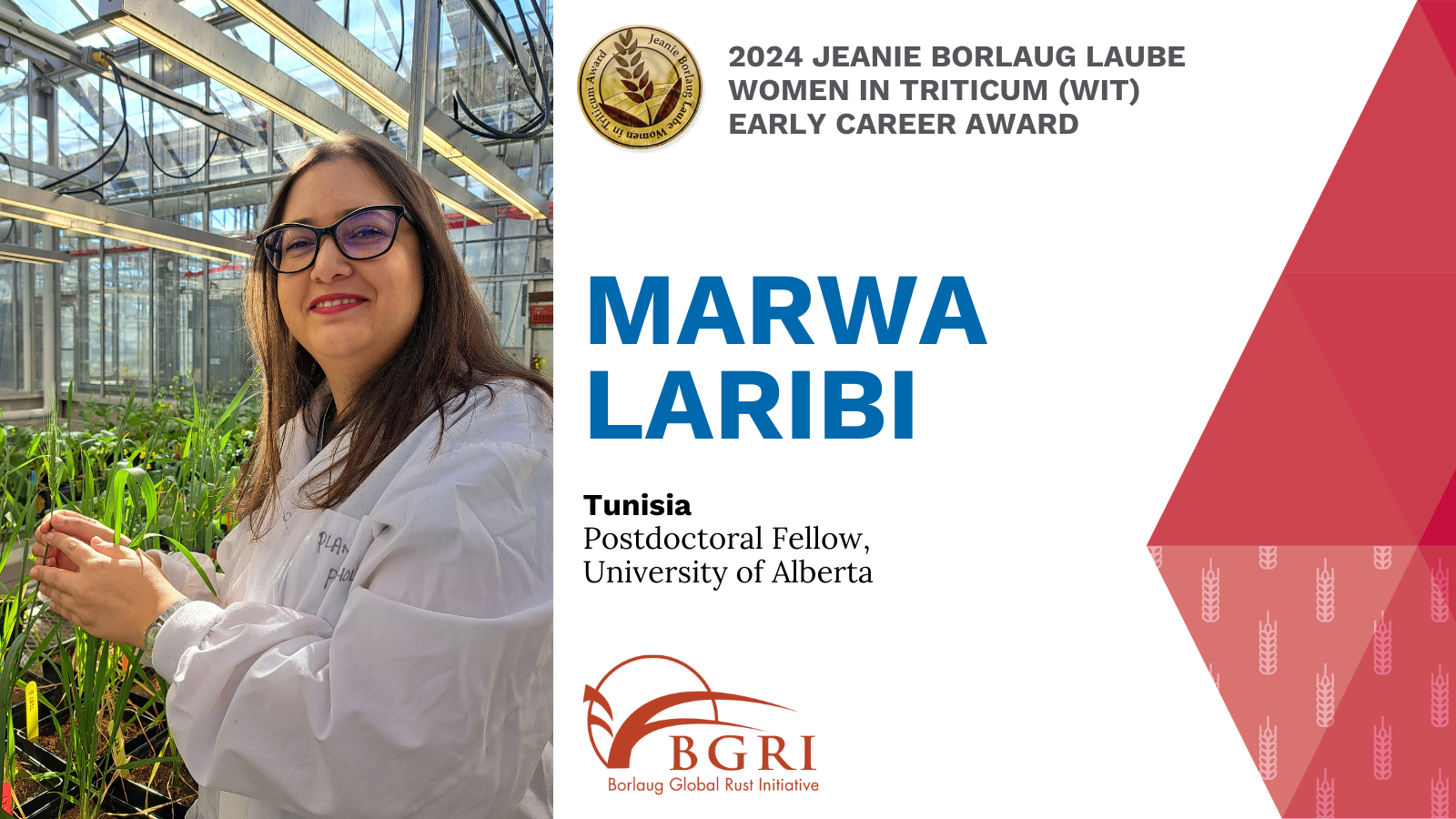
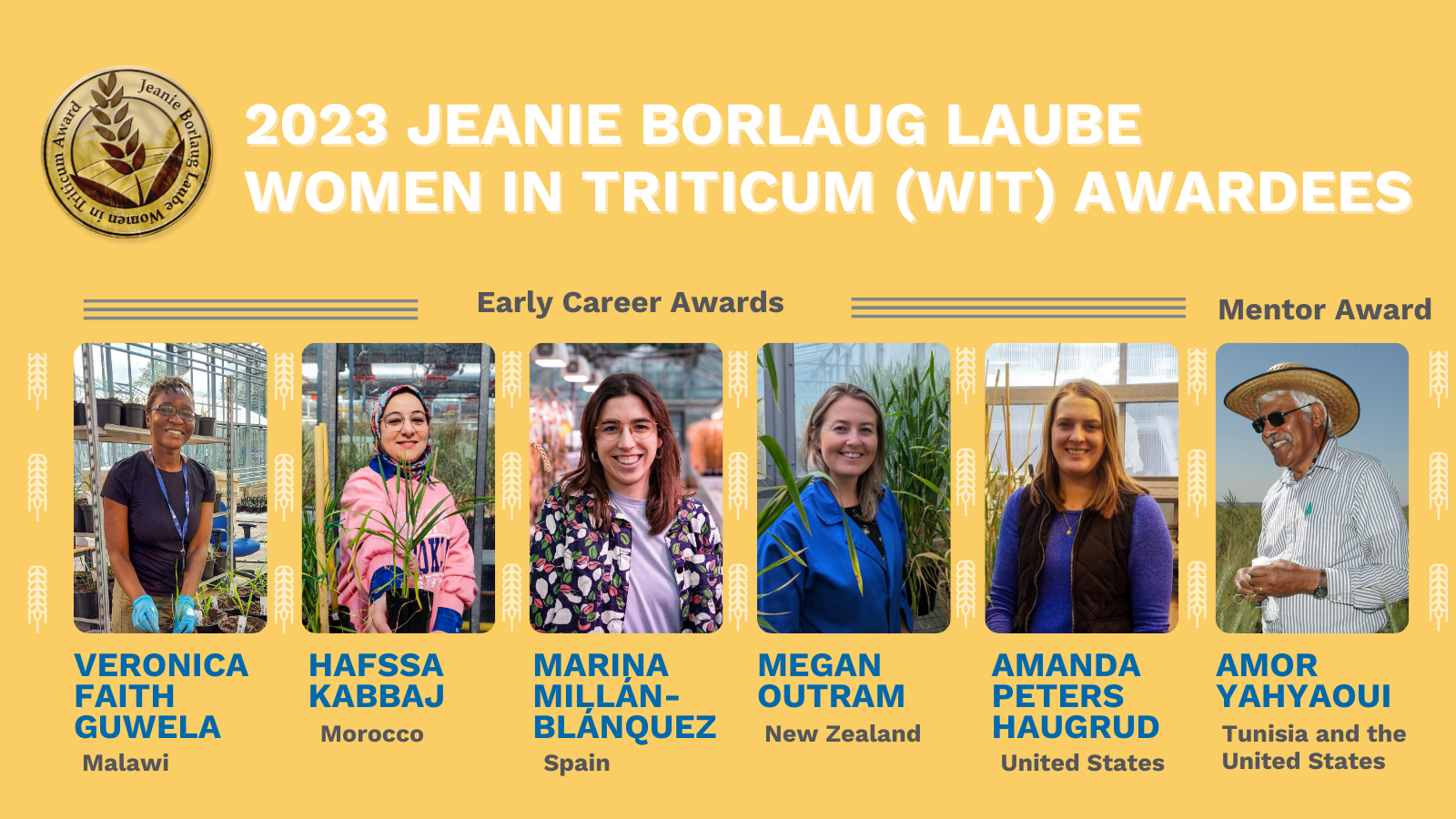
 Gender equality, youth and social inclusion
Gender equality, youth and social inclusion 